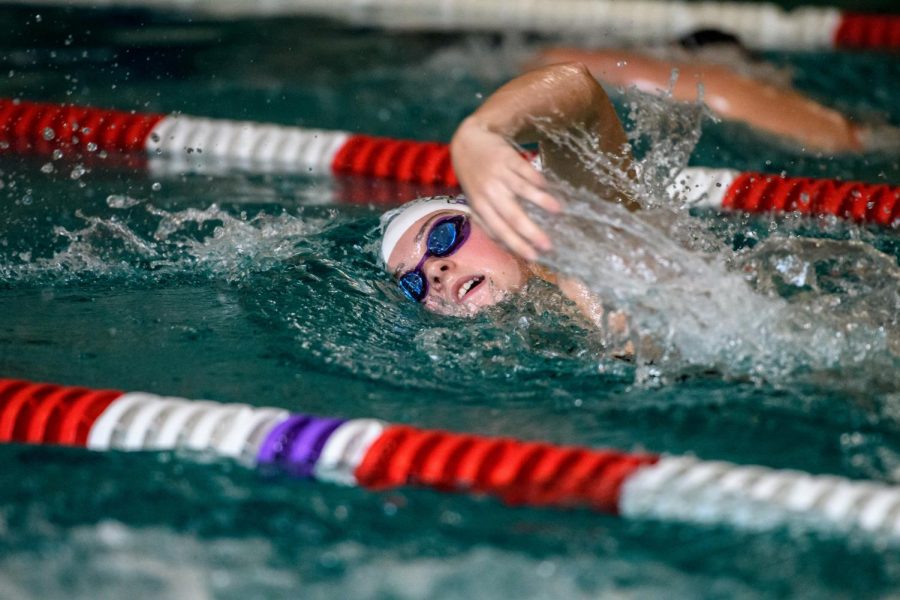The modern Olympic Games differ from their ancient Greek ancestors in significant ways. Is there still any lesson we moderns can learn from the ancients?
Heather Reid, professor of philosophy and chair at Morningside College, gave an affirmative answer and explained her thoughts by delivering the lecture, “Olympic Sport and Its Lessons for Peace,” Feb. 17 in the Jonasson Hall.
Reid started the lecture with an ancient paradox of Olympic, that is international peace and good will can hardly be promoted through competition among national teams, though peace is one of the most important Olympic goals.
“Nonetheless, the ancient Olympic festival somehow developed an association with peace,” Reid said. “The association between Olympic Games and peace was made explicit in the modern Olympic Charter.”
She discovered the Olympic-style sport can cultivate peaceful attitudes in three ways.
First, a time and place must be deliberately set aside for it.
Ancient Greek religious sanctuaries, where Olympic contests were held, were considered the property of the gods and separate from day-to-day worldly concerns and conflict.
Modern Olympic sport retains its status as sanctuary although it has lost religious purpose, Reid said.
The ancient Greek’s ability to compete peacefully also roots in the Hellenic tradition of xenia, or hospitality, which requires Greeks welcome strangers.
The tradition is a kind of interpersonal truce, the importance of which was not lost on modern thinkers such as Immanuel Kant, who understood it to be guaranteed not by gods in the limited space but by the fact that all human beings share common ownership of the earth’s surface.
“The modern Olympic truce is even more ambitious than the ancient one,” Reid said.
Since 1993, the truce demands that nations follow the athletes’ example and put aside their political differences at least for the duration of the Games.
A brief case-fire in Bosnia during the Lillehammer Games, for example, allowed an estimated 10,000 children to be vaccinated.
Second, others’ equality must be recognized.
This principle may derive from the religious origins of the Games, since a single best winner needed to be select through athletic contests, which most provide contestants equal opportunity in order to perform such a testing function.
In our modern world, sport is not possible unless competitors submit to a common set of rules, which defines them as equals.
“The fact is that athletic participation levels down social hierarchies,” Reid said.
“Perhaps even more important for the goal of peace, international contests such as those in the Olympic Games provide an educational spectacle in which the world see diverse people treating each other as equals a voluntarily submitting to common rules,” Reid said.
Third, one another’s differences within the larger world community must be respected.
The roots of this lesson lie in the nature of the ancient site itself, where altars were hosted to an immense variety of gods and heroes.
Furthermore, a Panhellenic site served not just a single city or region but the diverse panorama of peoples and cultures in the Ancient Greek World, Reid said.
The modern Olympic Games also remarkably successful at illustrating their cosmopolitanism spirit when the athletes abandon national ranks and enter the closing ceremonies as one world made of many diverse individuals and groups.
“Engaging in athletic competition with someone different in any number of ways helps not only to overcome stereotypes and confirm our won humanity but also, perhaps more important, to tolerate and even appreciate our differences,” said Reid.
“In philosophy, peace is always an idea – but one worth striving for,” Reid concluded. “What is remarkable about the Olympics and peace is that the two came to be associated with on another at all.”
Just as Reid emphasized at the beginning, the Olympic Games retain the potential to teach us similar lessons – as long as we are willing to listen.
Xiaoyu Fan / Staff writer
Xiaoyu Fan can be reached at [email protected]

